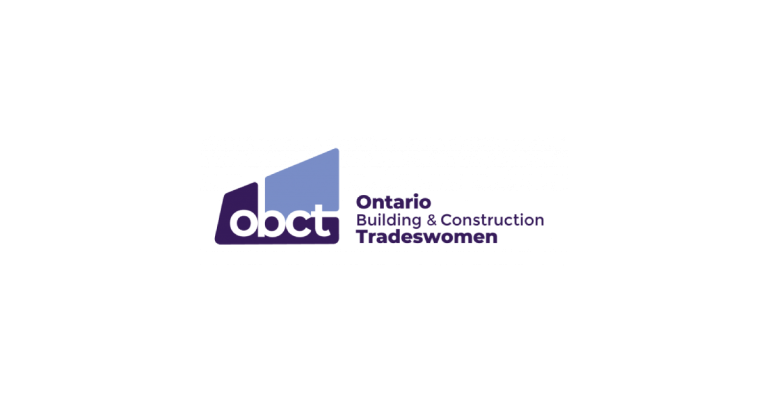Training and Education with Ali Heighton of IBEW Local 37

Sept 16, 2019
By Blake Marchand
Ali Heighton is the Program Coordinator for IBEW Local 37 who has found success as a young professional working on Local 37’s Training Trust Fund. The Training Trust provides programs that were recognized earlier this year by Electricity Human Resources Canada (EHRC) at their annual industry awards ceremony.
Heighton earned herself a Bachelor of Arts in 2013 and continued her schooling into Adult Education at the University of New Brunswick. After graduating, she worked as a trainer for the Government of New Brunswick’s Workplace Essential Skills Program. She initially began with IBEW Local 37 as a summer student while she was attending university. Ali took advantage of a job opening in 2016, starting full time with IBEW 37 in the Program Coordinator position. Heighton also noted she is studying part-time to become certified in Applied Human Resources Management.
“As the Program Coordinator, I look after all the training initiatives that are supported by the IBEW Local 37 Training Trust Fund,” Ali said, with respect to her role with IBEW. The Training Trust Fund’s mandate is “to support and encourage training and development activities that contribute to success in the workplace and career development.”
To that end, Heighton told Electrical Industry Canada, “For many years, the Fund has been supporting workshops on a variety of topics, including communication skills, conflict resolution, leadership, resilience and change management, and so much more. Each year, the Trust Fund also puts on an annual education conference that supports personal and professional development.”
“There’s also a learning reimbursement program that members can access where they can get reimbursed for up to $1000 per year for expenses related to undergoing continuous training as it relates to career development,” she continued.
It’s clear that Ali has a passion for helping others and supporting her local communities. And that is much of what she is doing with IBEW. Empowering individuals through her work with Local 37 by fostering the skills, training, and resources necessary to succeed in the skilled trades. When EIN asked Heighton about her career aspirations it seemed as though she has found her passion with IBEW. “My values align really well with the mission of IBEW 37,” she said, “to work as a team to improve the lives of our members and their families, which is what I am doing in my current role through training and education. I hope that I can continue to build strength in New Brunswick communities no matter what role I’m in.”
In the interview below Heighton discusses her work with IBEW Local 37 as well as providing some interesting insight into the industry.
 What are some of the trends/issues etc. that IBEW is currently addressing with its programming? For example, the ERHC’s focus on engaging young professionals.
What are some of the trends/issues etc. that IBEW is currently addressing with its programming? For example, the ERHC’s focus on engaging young professionals.
A report came out in 2018 that was conducted by the Royal Bank of Canada called the 2018 Future Skills Report. It outlines that a new skills economy is on the horizon, and the demand for people trained in “soft skills” will increase in the years to come. As we see industries change due to rapid advancements in automation and technology, workers will need to be able to keep up with that change to remain relevant and employable. The report states that traditional soft skills are in high demand and will continue to be in high demand as the industry changes.
The energy industry, in particular, is seeing this rapid change already. With the increasing push toward renewable energy, electric vehicles, energy efficient homes, and smart grids, etc. Workers in this industry are going to be affected – if they haven’t been already. The 2018 Future Skills Report outlines that it is possible for workers to readily adapt to a new job if soft skills are developed.
In addition to the RBC Future Skills Report, a recent Globe and Mail article written by Suzanne Bowness recognizes that the workforce is changing with the emergence of ‘new-collar’ jobs. These jobs require skills that the Canadian education system can’t keep up with – skills like communication, teamwork, and critical thinking.
The Local 37 Training Trust Fund recognized long ago that technical skills alone are not enough to be truly effective in the workplace. The TTF strives to offer quality and relevant knowledge and skills-based training that meets the current and future needs of our largest employer partner, New Brunswick Power, and over 2200 members working in the ever-changing utility industry. Because of this, the TTF’s primary focus has been on offering learning opportunities for members that help develop and strengthen their skills in leadership, problem-solving, interpersonal and intrapersonal communication, critical thinking, etc.

Can you tell me a bit about the Training Trust Fund, what is your involvement in that program, what has contributed to its success?
The Training Trust Fund began in the late 80’s as a joint initiative of IBEW Locals 1733 and 2309 (these locals amalgamated in the year 2000 as Local 37), New Brunswick Power, and the Government of Canada.
The Training Trust Fund got off the ground with a start-up grant from the federal government, and it’s now currently sustained by investment income from the fund and a contribution of three cents per hour that IBEW Local 37 members at NB Power. In addition, NB Power also contributes 40% of the TTF’s annual expenditures to a maximum of $50,000 per year. The Fund is managed by a Board of Trustees comprised of both union and NB Power management representatives.
I look after the administration of the Fund in consultation with the Board of Trustees. Basically, that means I’m responsible for coordinating all the training initiatives and programs sponsored by the fund, including workshops, conferences, and other programing.
The program’s success can be attributed to a number of factors. Firstly, the innovative thinkers that drove the creation of the fund many years ago who recognized the importance of this type of training. Secondly, the continued support of the employer, NB Power. In addition to their financial contribution, the relationship between IBEW Local 37 and NB Power is extremely significant in the success of the fund. Third, the continued support of the Local 37 membership is incredibly important to the success of the TTF – they’re the ones attending our training and accessing the TTF’s programs, in addition, each member contributes three cents per hour worked to the Fund.
As a young professional, have you had any mentor/role model type figures, whether informally or formally? What is the importance of those dynamics, in your opinion?
Yes, I’ve had an informal role model/mentor. When I was undergoing my Education degree in 2014, I had intended to become a schoolteacher. After undergoing some of my on-the-job training through that degree, I realized that being a schoolteacher wasn’t for me. So, I turned to a close connection that had studied Adult Education and had practiced in that field, as well as in Human Resources for many years. It was through her mentorship that I realized Adult Education and Human Resources might also be a great fit for me. So, I switched gears and here I am today. The experience was really valuable in showing me that different skills are transferable across industries.
Being a part of an industry organization like IBEW Local 37, could you perhaps comment on the state of diversity in the industry?
Industry-wide, I think there’s room for improvement in this area. With that said, I’ve attended union conferences and conventions over the years, and a common theme has been a lot of discussion and collaboration on how to best implement strategies that will promote both diversity and inclusion in our workplaces. It’s really encouraging to see that the value of including diverse populations in the workforce is being widely recognized.
In addition, Local 37 and our largest employer group, NB Power, have shown their commitment to fostering an open and inclusive work environment, by establishing a joint Diversity & Inclusion committee. I’m very proud of this partnership where together, Local 37 and NB Power are striving to increase awareness and reinforce a positive, welcoming culture at work.
Blake Marchand is an Assistant Editor with Kerrwil Electrical Group

















